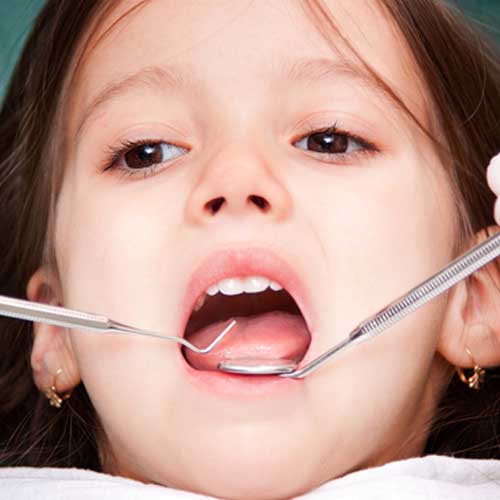
Maintaining good dental health from a young age sets the foundation for a lifetime of healthy smiles. As parents, you play a crucial role in guiding your children toward proper oral hygiene and reducing their fear of the dentist. Here’s a comprehensive guide to help you instill good dental habits and ensure your child’s visits to the dentist are as stress-free as possible.
1. Start Early Establish Good Habits from the Beginning

Dental care should start as soon as your child’s first tooth appears. Gently clean their gums with a soft, damp cloth or a small, soft-bristled toothbrush designed for infants. By the time their first teeth emerge, start brushing them twice a day with fluoride toothpaste. Use a pea-sized amount to ensure they’re not swallowing too much toothpaste.
2. Make Brushing Fun
Children are more likely to embrace brushing if it’s enjoyable. Choose a toothbrush with their favorite character or let them pick their own. Play a fun song or use a timer to make sure they brush for the recommended two minutes. You can also turn brushing into a game by using apps or brushing charts to track their progress and reward them for consistent brushing.
3. Teach Proper Technique
Demonstrate the correct brushing technique by showing your child how to brush gently in small circles. Ensure they understand the importance of reaching all surfaces of their teeth, including the fronts, backs, and chewing surfaces. Supervise their brushing until they are around 7 or 8 years old to ensure they’re brushing effectively.
4. Introduce Flossing Early
Once your child has two teeth that touch, it’s time to introduce flossing. Use a floss holder or floss picks designed for children to make it easier. Flossing helps remove food particles and plaque between teeth where a toothbrush can’t reach, promoting healthier gums and preventing cavities.
5. Establish a Routine

Consistency is key to forming good habits. Establish a daily oral care routine that includes brushing twice a day and flossing once. Make it a part of their morning and bedtime rituals. Children thrive on routine, and a consistent schedule helps reinforce the importance of dental hygiene.
6. Lead by Example
Children often mimic their parents’ behavior. By practicing good oral hygiene yourself, you set a positive example for your child. Brush and floss together, and discuss the benefits of dental care openly. This shared experience can also be an opportunity to bond and make dental care a family activity.
6. Lead by Example
Children often mimic their parents’ behavior. By practicing good oral hygiene yourself, you set a positive example for your child. Brush and floss together, and discuss the benefits of dental care openly. This shared experience can also be an opportunity to bond and make dental care a family activity.
7. Healthy Diet Matters

A balanced diet is essential for maintaining healthy teeth. Limit sugary snacks and beverages, as they contribute to tooth decay. Instead, encourage healthy snacks like fruits, vegetables, and cheese, which are good for both teeth and overall health. Ensure your child drinks plenty of water, especially after meals, to help rinse away food particles.
8. Regular Dental Visits
Schedule your child’s first dental visit by their first birthday or within six months of their first tooth emerging. Regular check-ups, usually every six months, are essential for monitoring their oral health and catching any issues early. Use these visits as an opportunity to educate your child about the importance of dental care.
9. Make Dental Visits Positive
Fear of the dentist is common among children, but you can help alleviate this anxiety by creating positive experiences. Choose a pediatric dentist who is experienced in working with children and has a friendly, welcoming office environment. Prepare your child for their visit by explaining what to expect in simple, reassuring terms. Avoid using negative language or making the dentist sound frightening.
10. Address Dental Issues Promptly
If your child experiences dental pain or discomfort, address it promptly. Delaying treatment can lead to more significant problems. Encourage your child to communicate openly about any issues they’re having with their teeth or gums.
Fostering good dental hygiene habits in your children is a vital part of their overall health and well-being. By starting early, making dental care fun, and setting a positive example, you can help your child develop a lifelong commitment to oral health. Regular dental visits and a balanced diet further support their dental health, while addressing any fears or concerns about the dentist helps ensure their experiences are positive and stress-free.
Your involvement and encouragement are key to helping your child achieve and maintain a bright, healthy smile for years to come.
